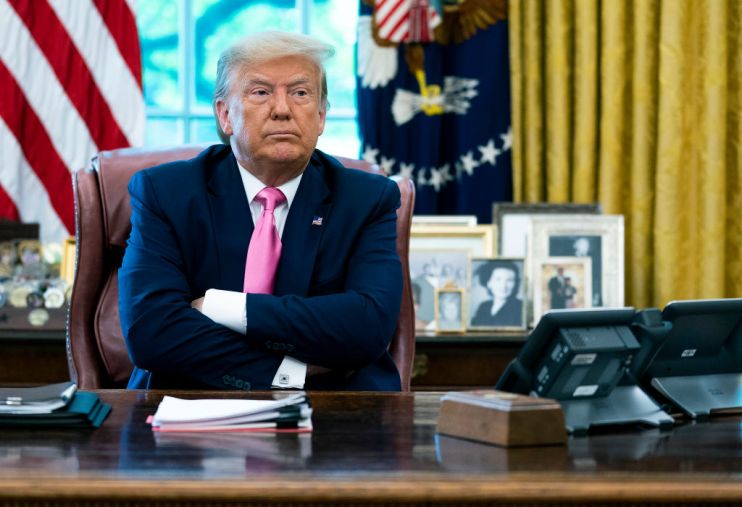Trump calls to delay 2020 US election on ‘inaccurate and fraudulent’ voting systems

US President Donald J Trump has put out a call to delay the upcoming US 2020 presidential election, saying current voting systems are “inaccurate and fraudulent”.
Trump, without evidence, today repeated his claims of mail-in voter fraud and raised the question of a delay, writing on Twitter: “Delay the election until people can properly, securely and safely vote???”
Trump’s calls come despite the election’s date being enshrined in the US Constitution, meaning he does not legally have the power to order a delay.
His tweet follows the news that US economic output fell 9.5 per cent in the second quarter, its biggest drop on record and marking a 32.9 per cent annual decline.
It has been suggested by commentators that Trump’s call for an election delay means he would not accept the result of the vote should it go in favour of rival Democratic candidate Joe Biden.
The White House has previously denied Trump had any interest in changing the date for the election, which is currently scheduled for 3 November. However his aides have previously floated that possibility.
The sitting US president is currently lagging behind in the polls, trailing behind Biden in almost all of the key battleground states.
There is also no evidence to suggest that mail-in voting leads to inaccurate counts or fraudulent representation.
Trump’s call for an election delay comes after the coronavirus pandemic forced the states of Louisiana and Georgia to postpone their primary elections, over concerns about the spread of the disease.
These moves were permitted as local laws allow a governor to reschedule an election because of an emergency, as long as the secretary of state has confirmed that the emergency exists.
However the date of the US general election has been set out in federal law since 1845, meaning a delay would require legislation to be signed by Trump and passed by Congress.
Separately, the US Constitution rules that Congress must be sworn in on 3 January, with a new President to begin their term on 20 January. This means that Trump would not have much time to find a new date for the election, should a delay be approved.
Elections in the US have been moved in the past, but only at a state or local level as those laws are more flexible. Notable examples include the election delays as a result of the 2001 terror attack in New York, and Hurricane Irma in 2017.